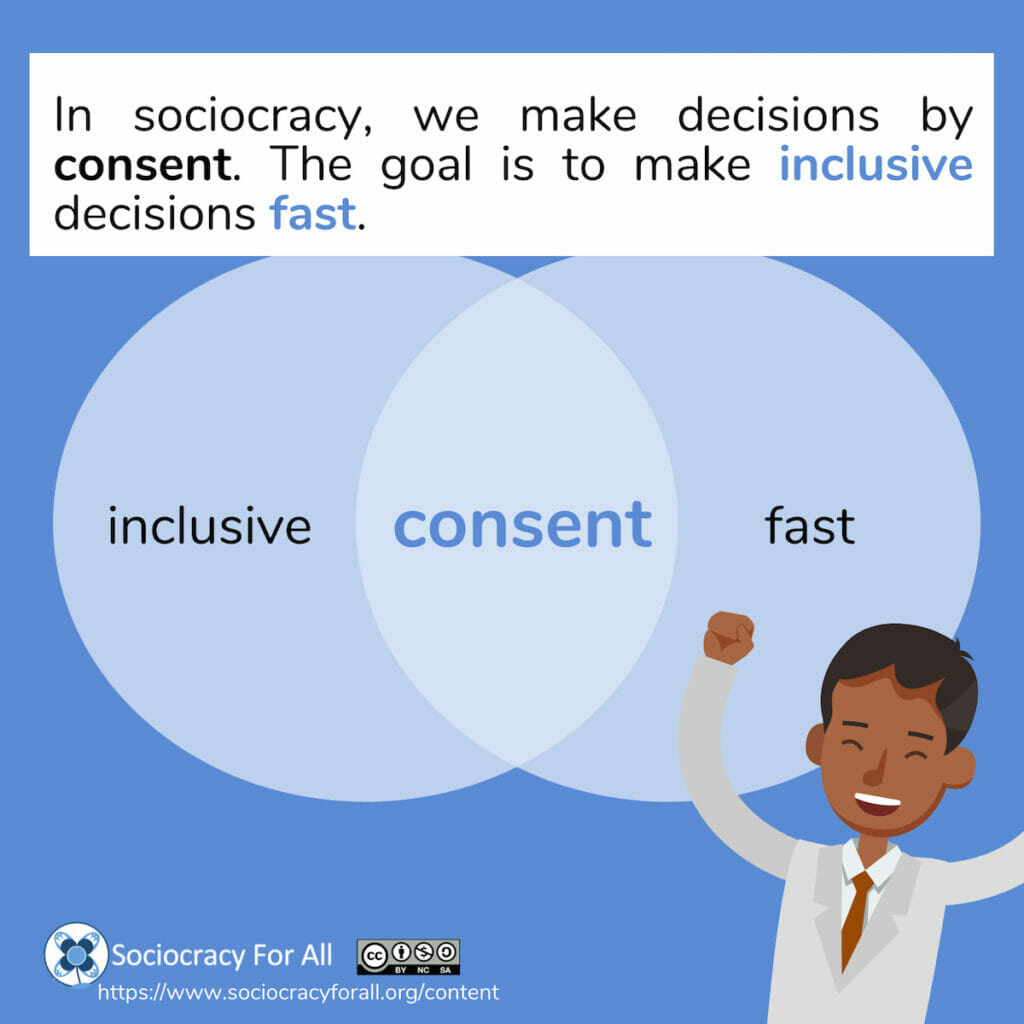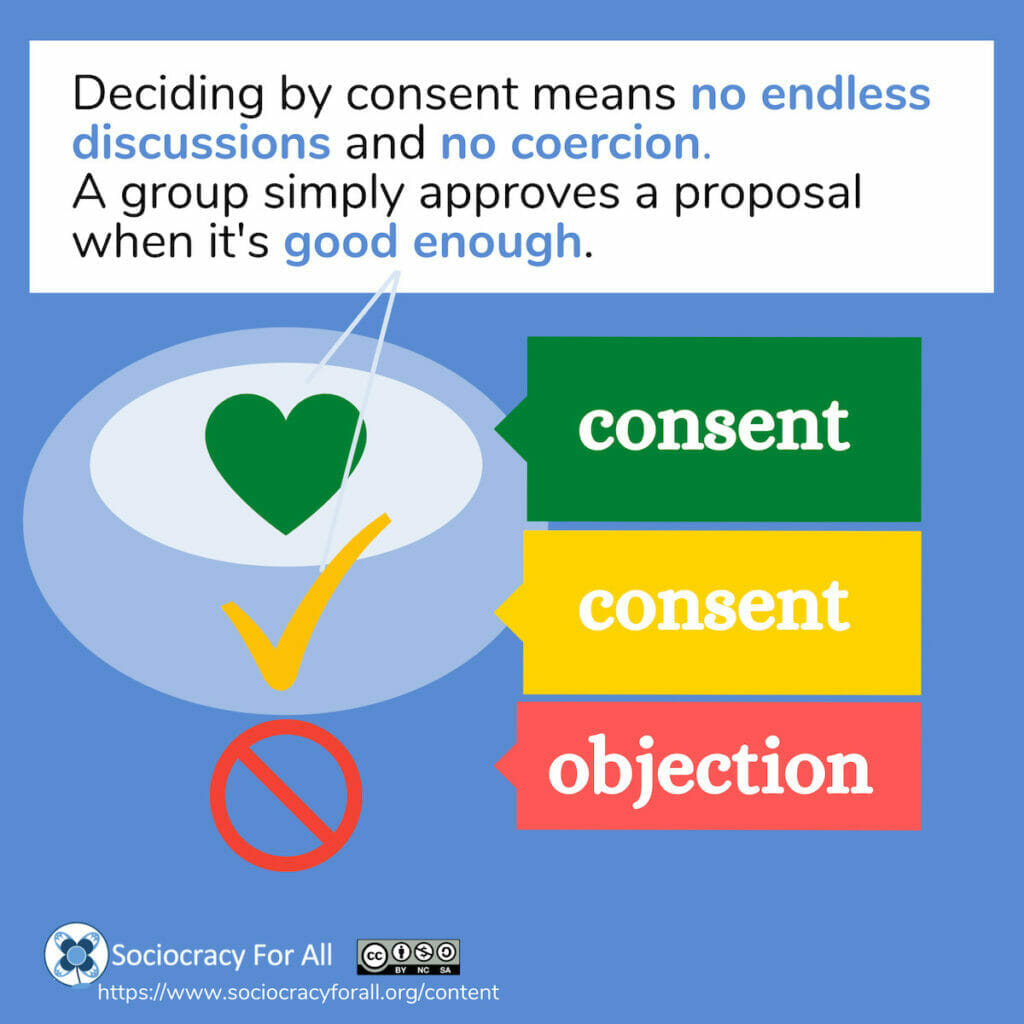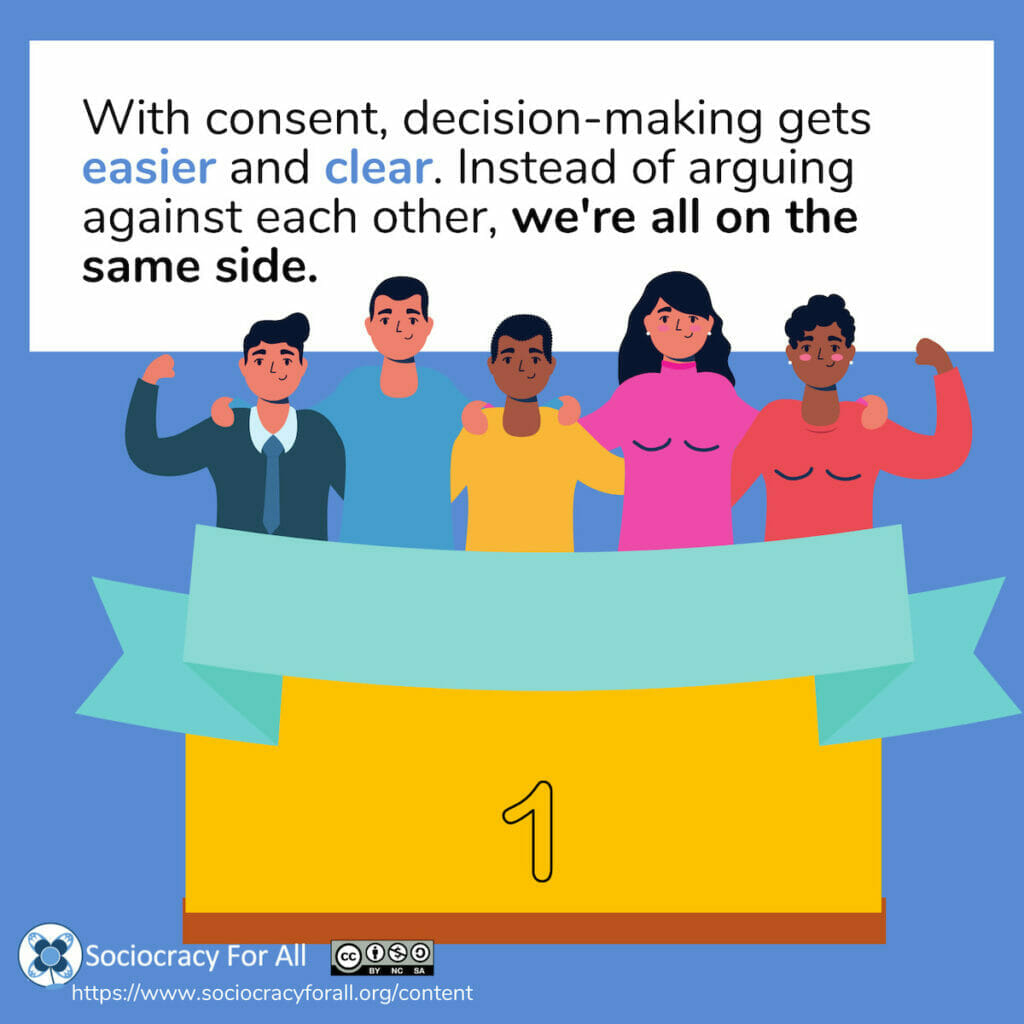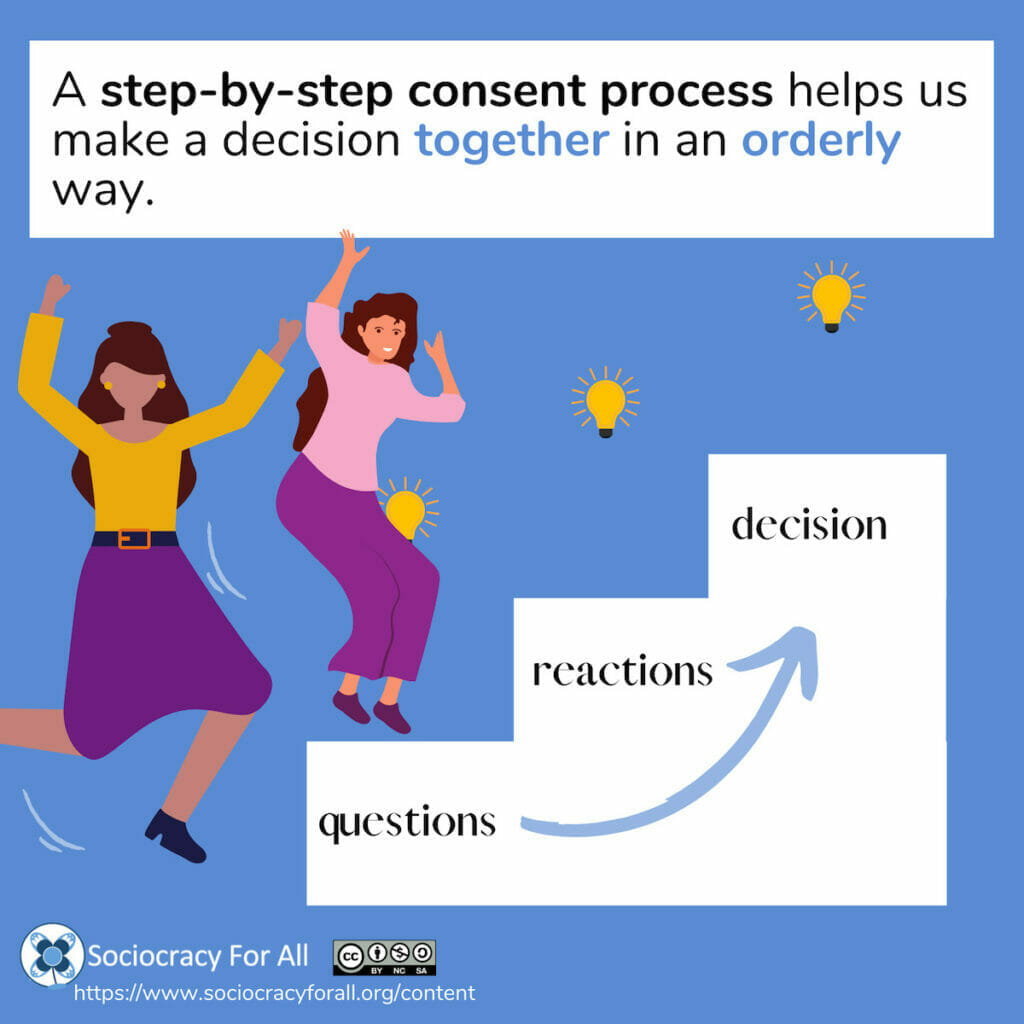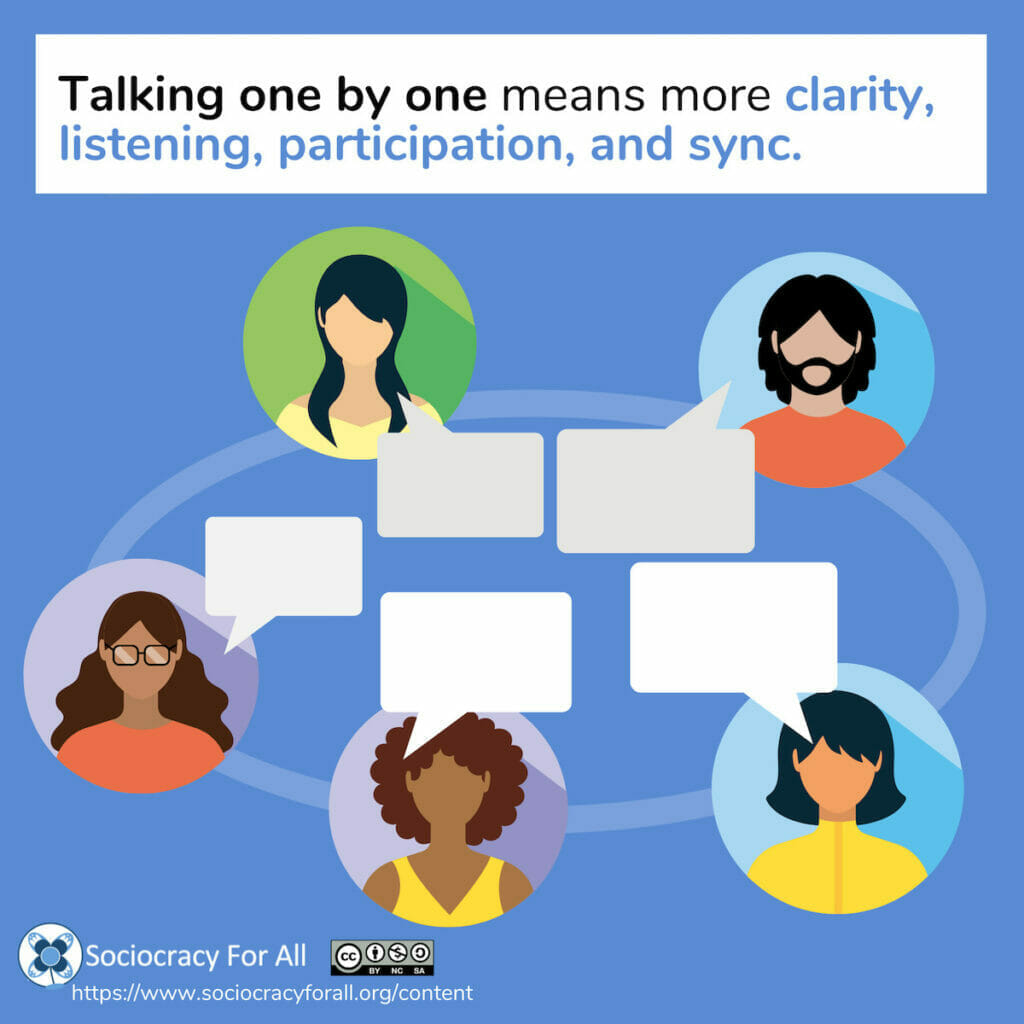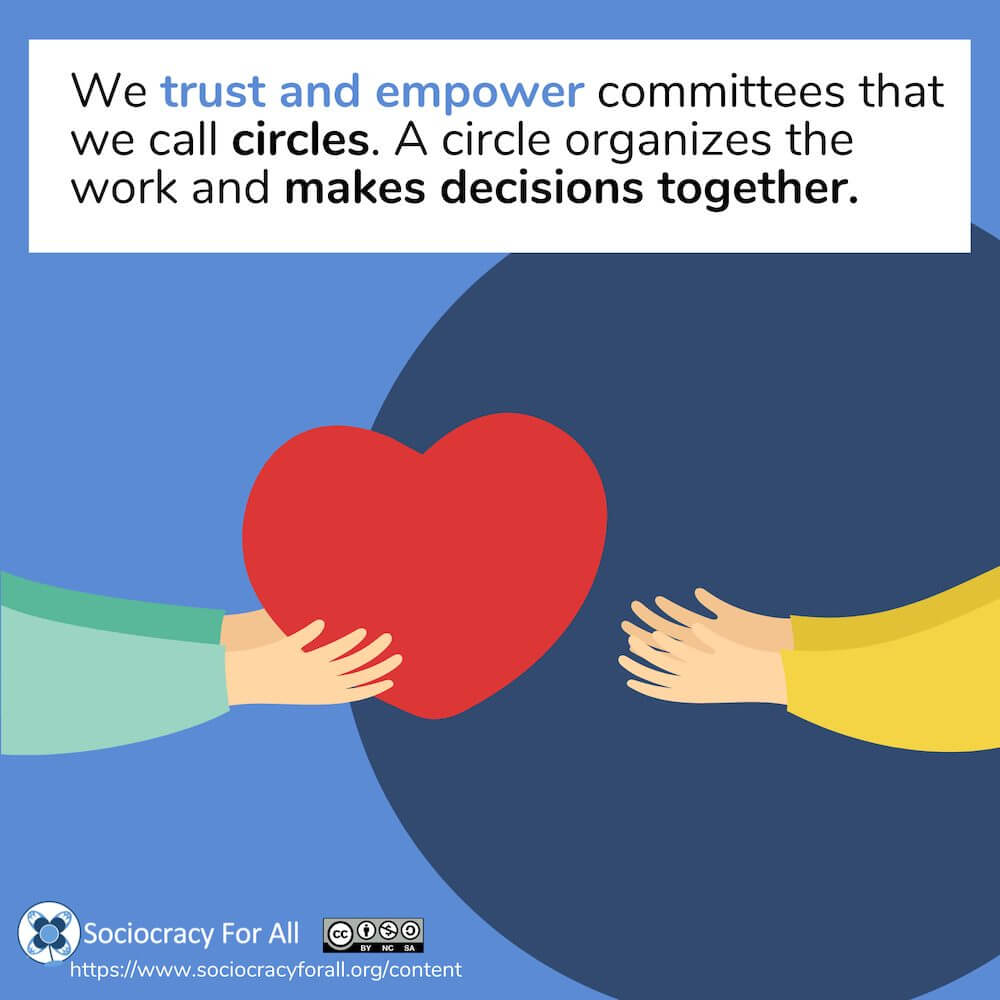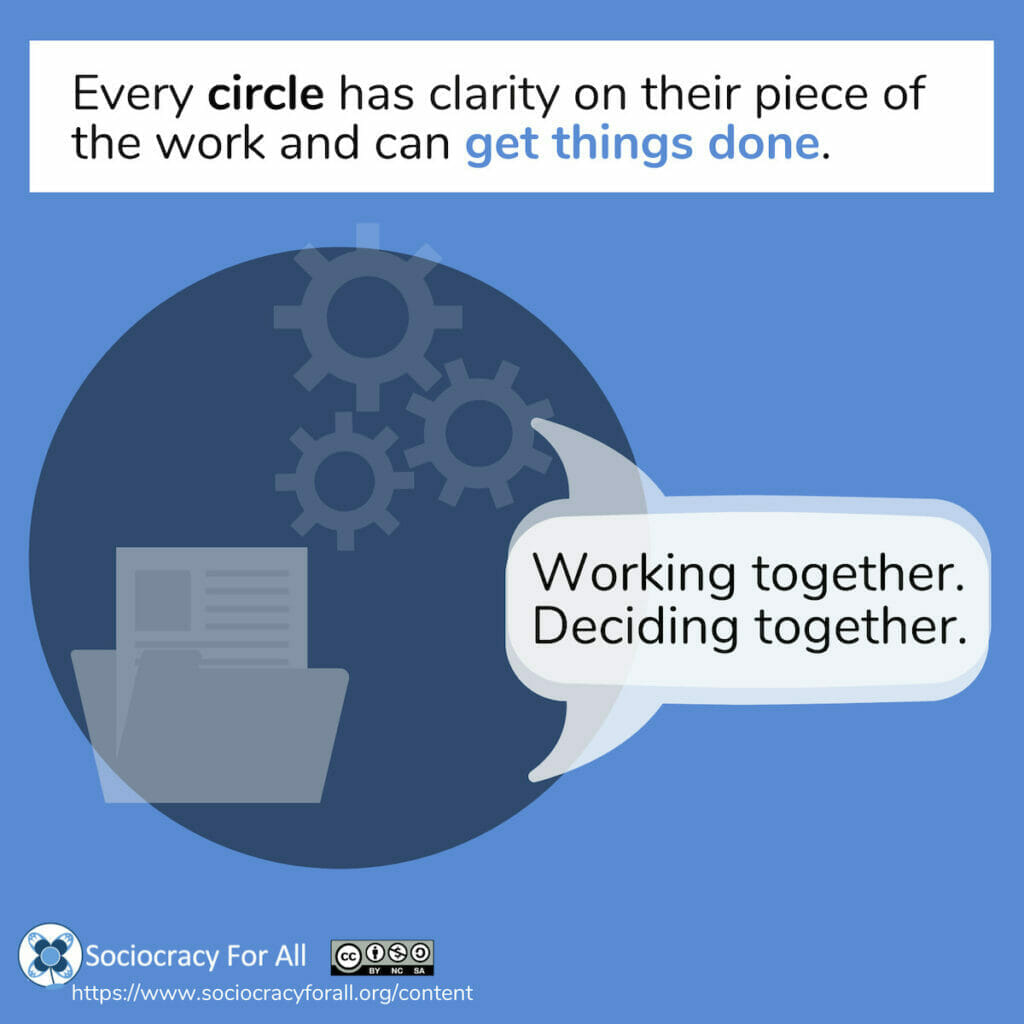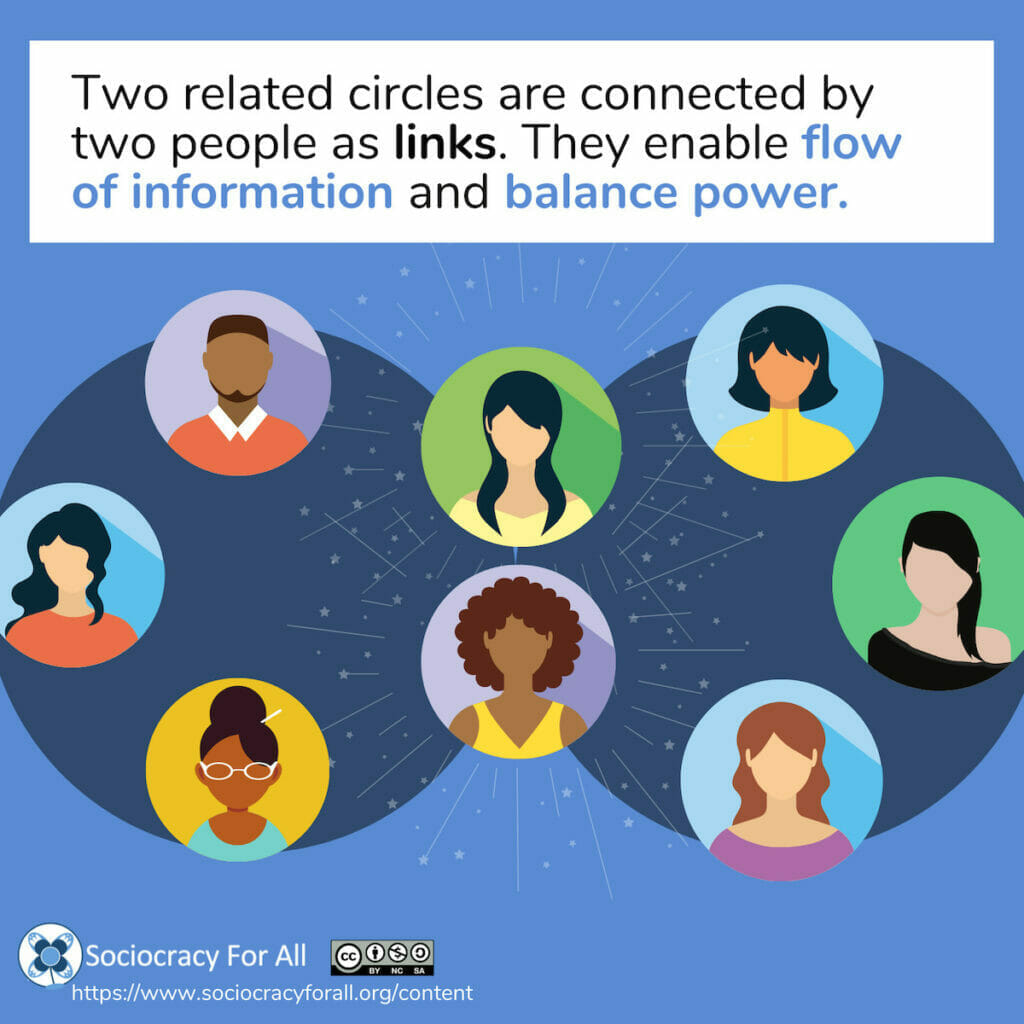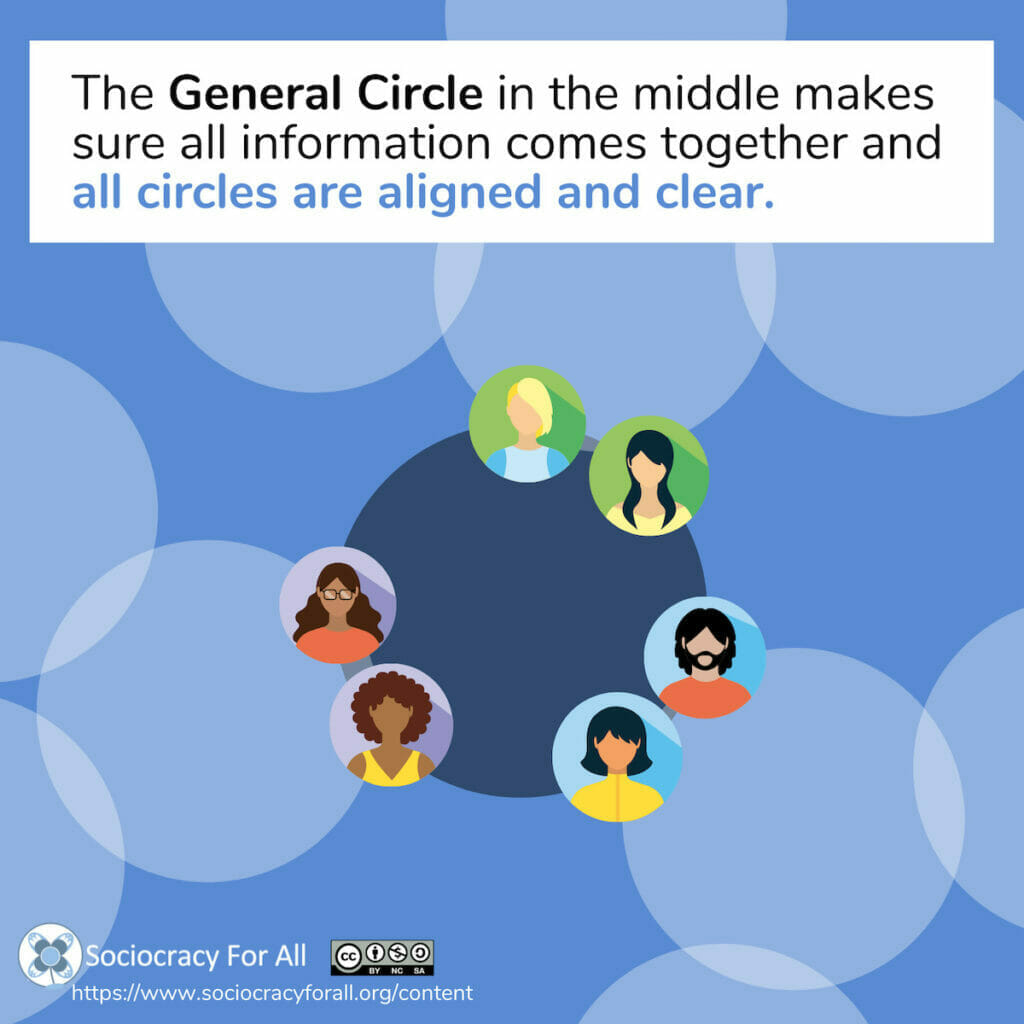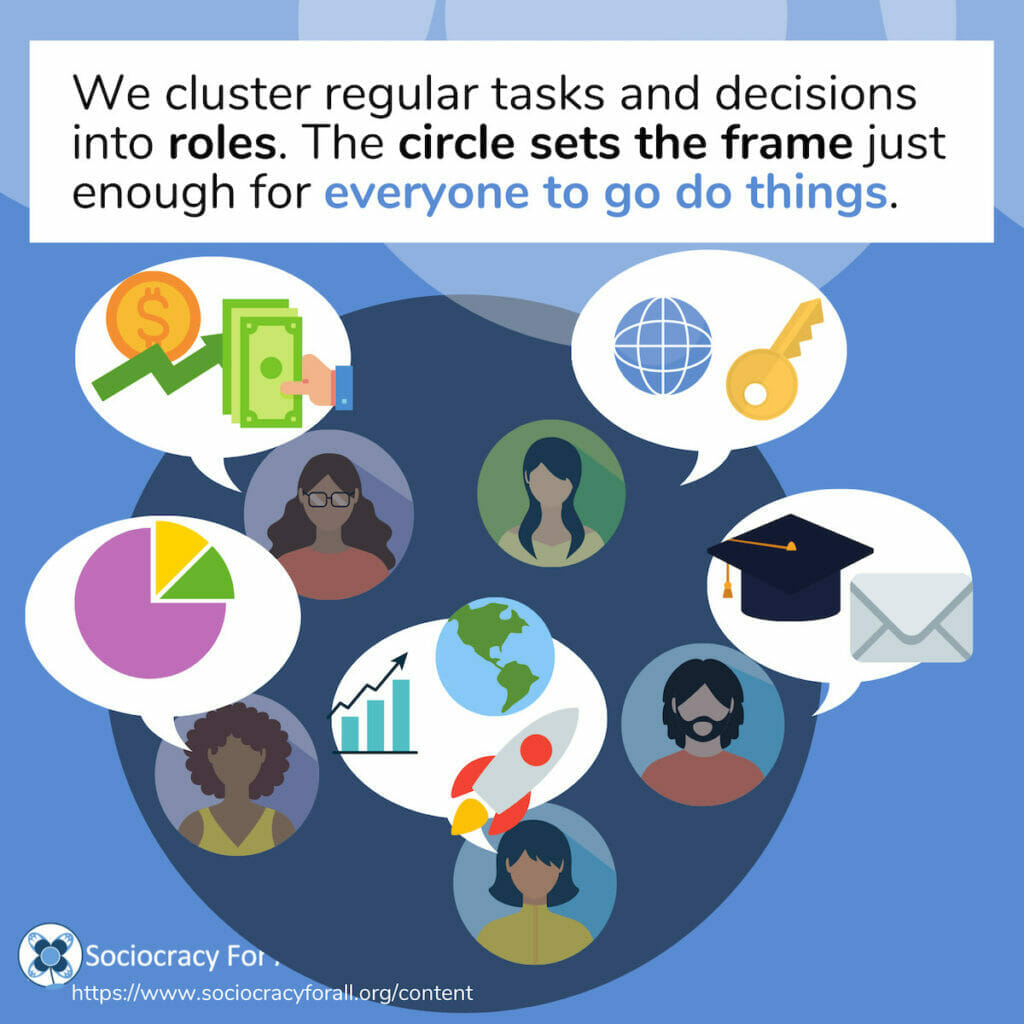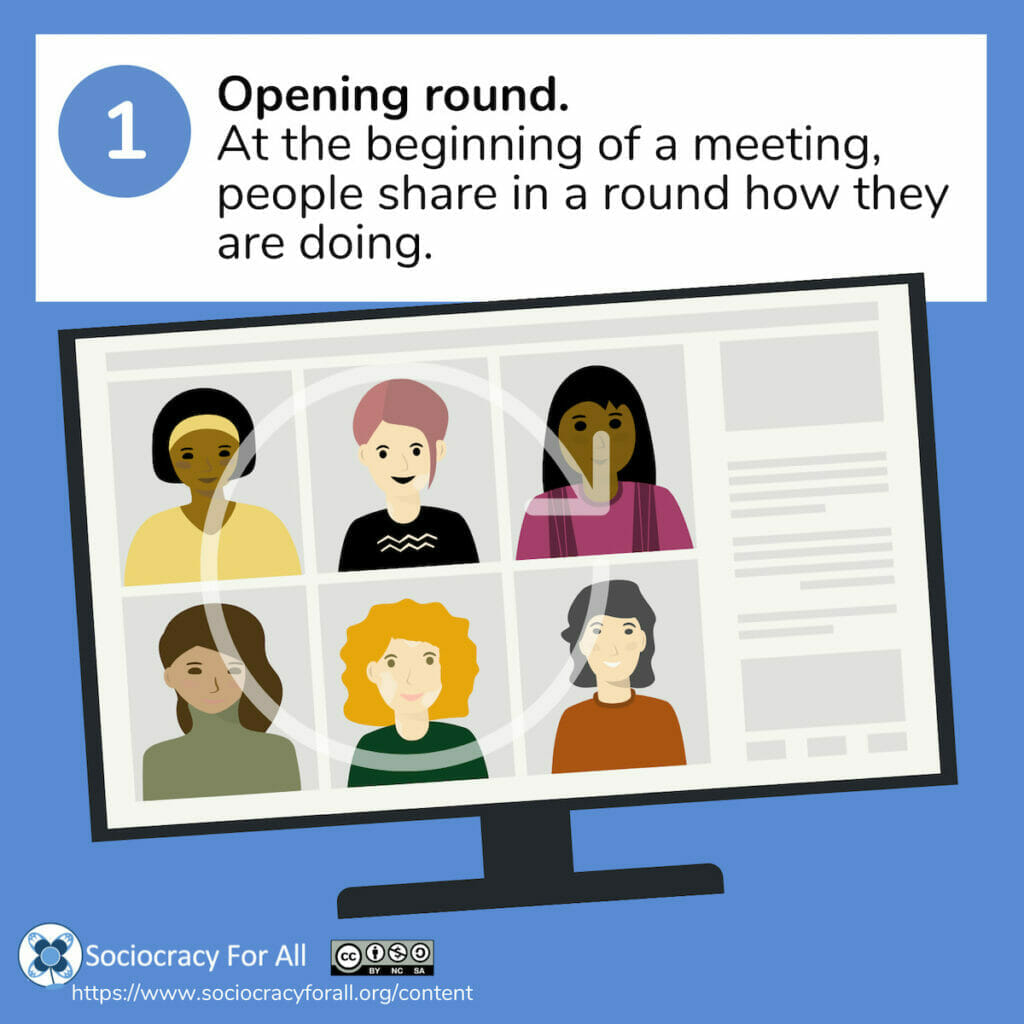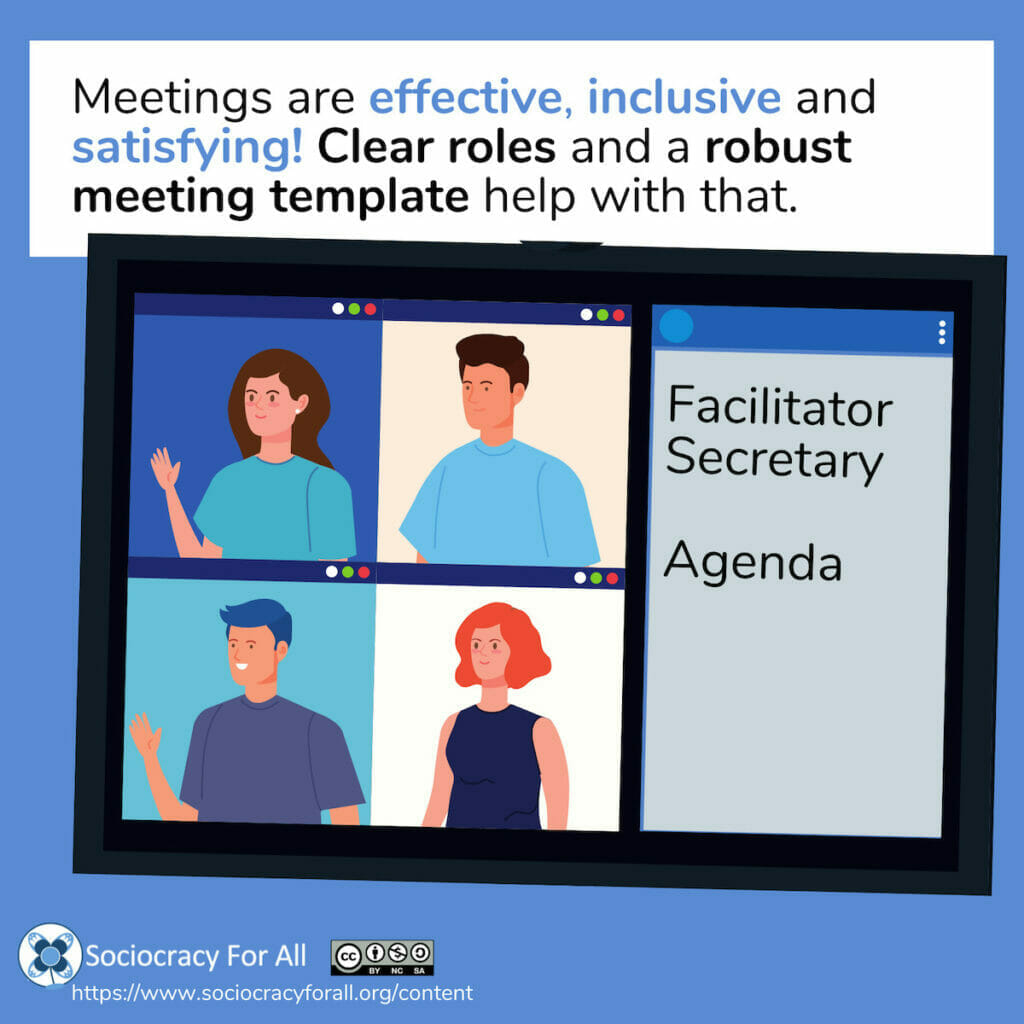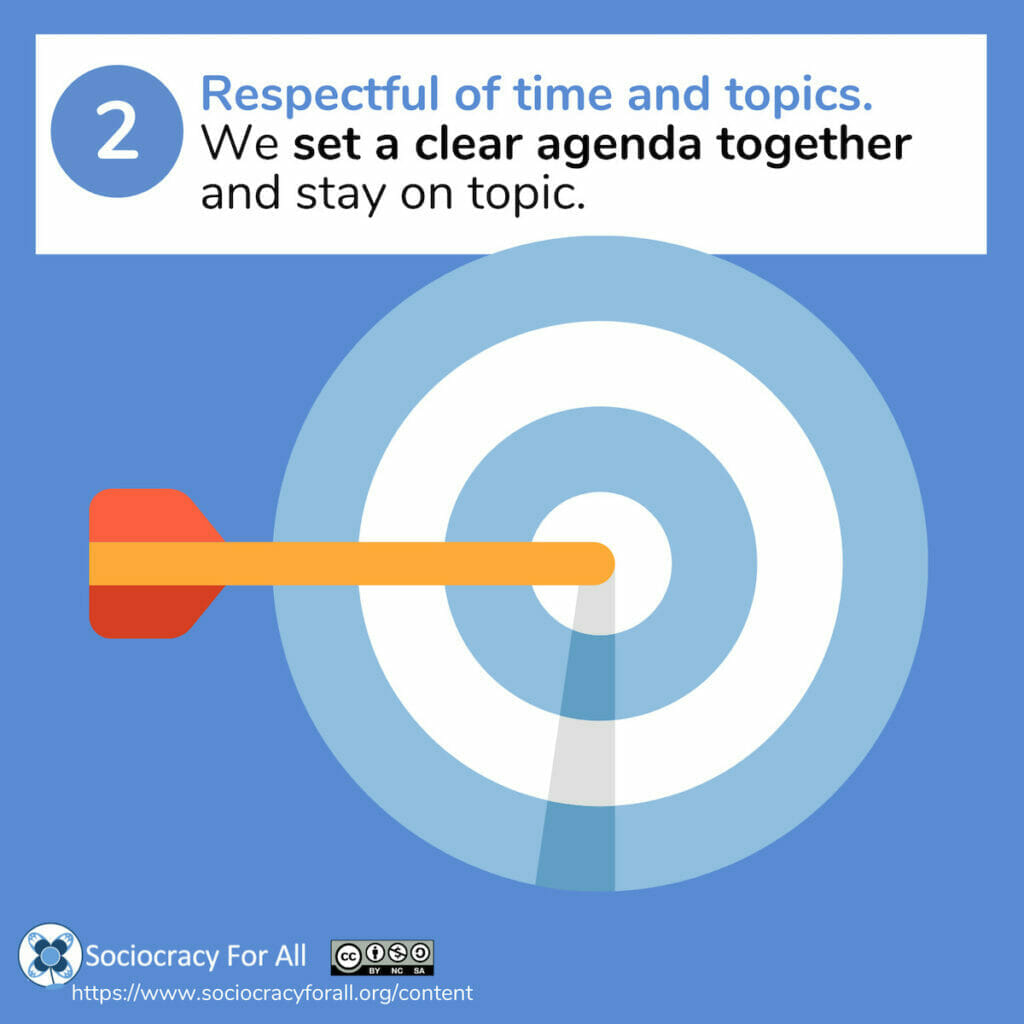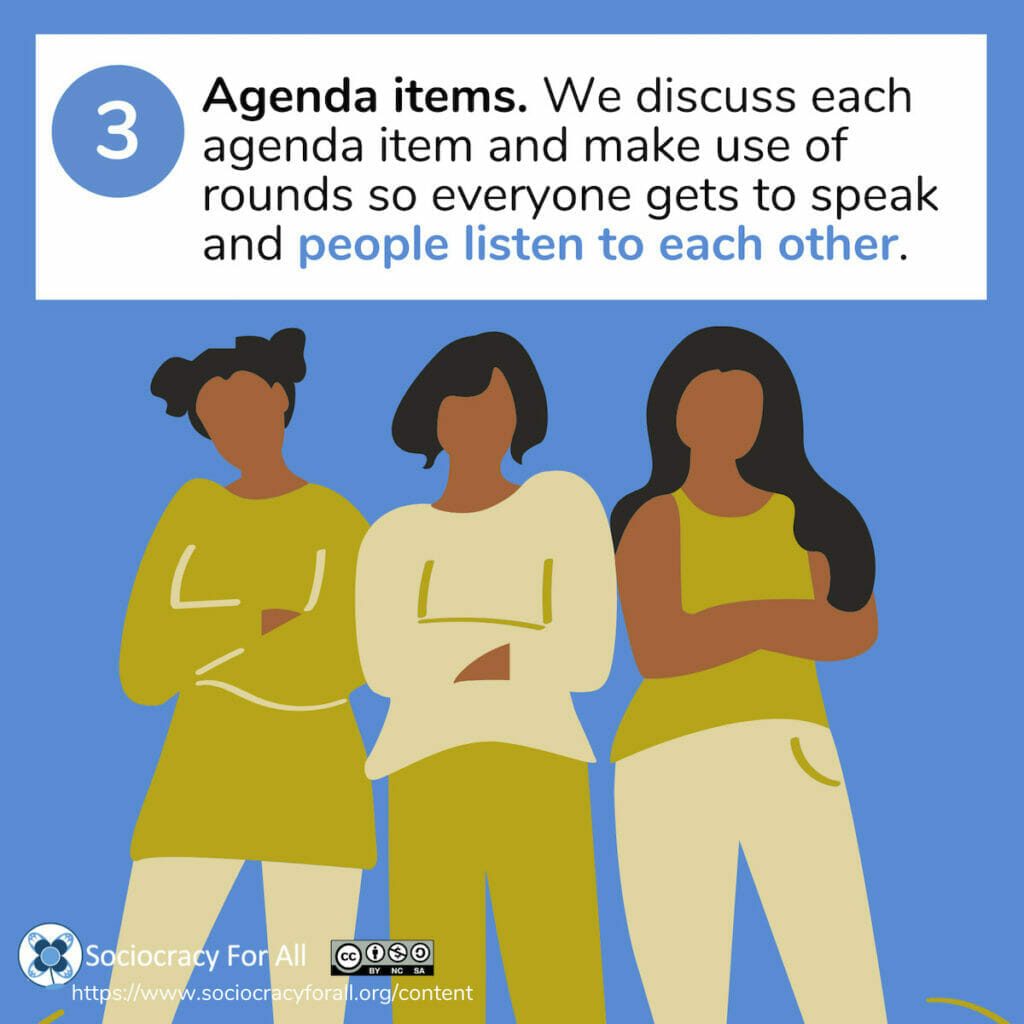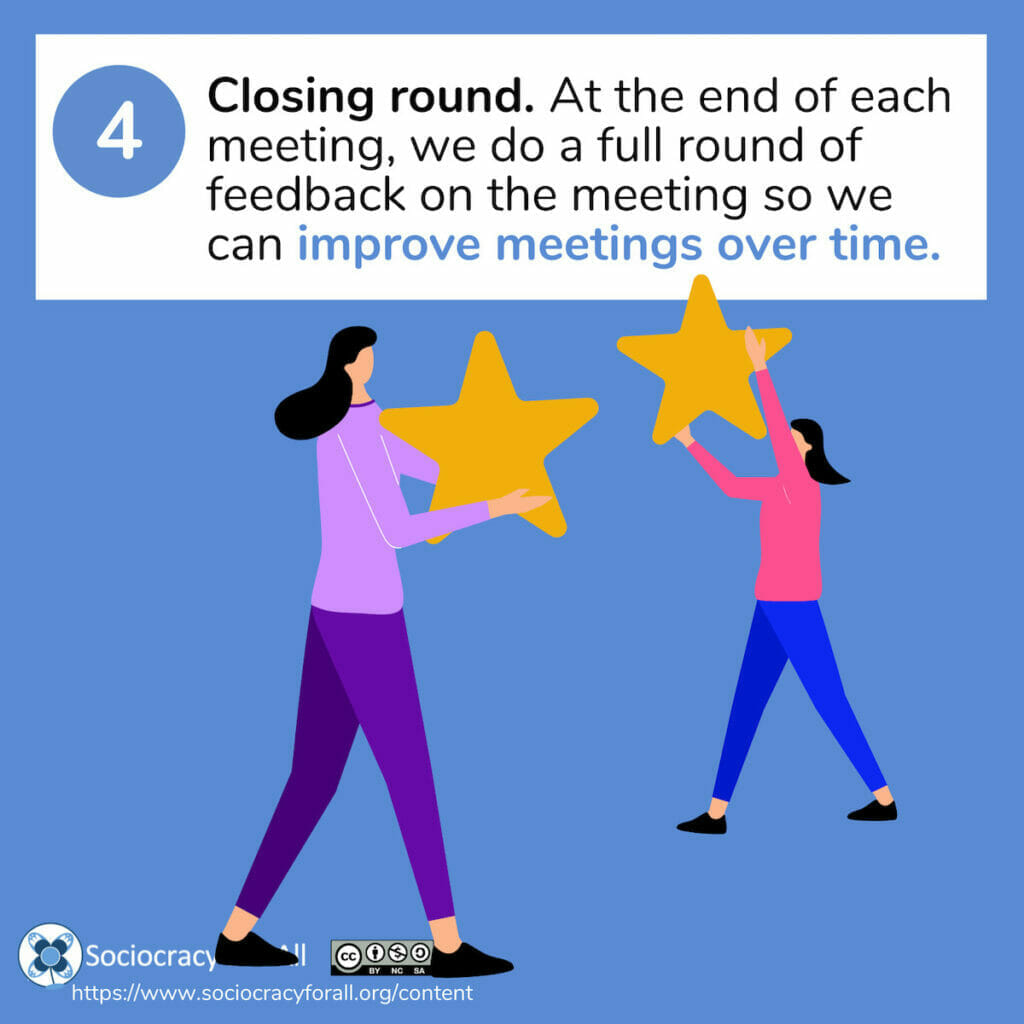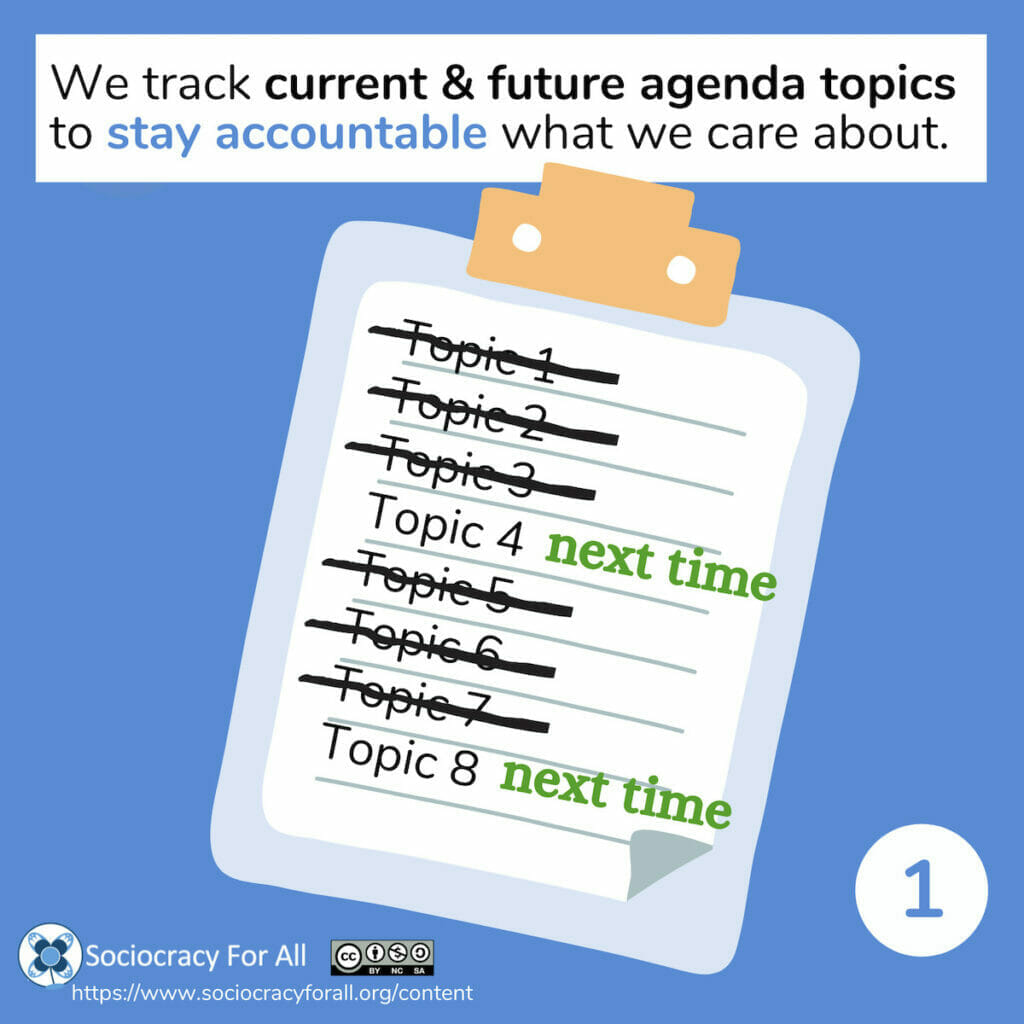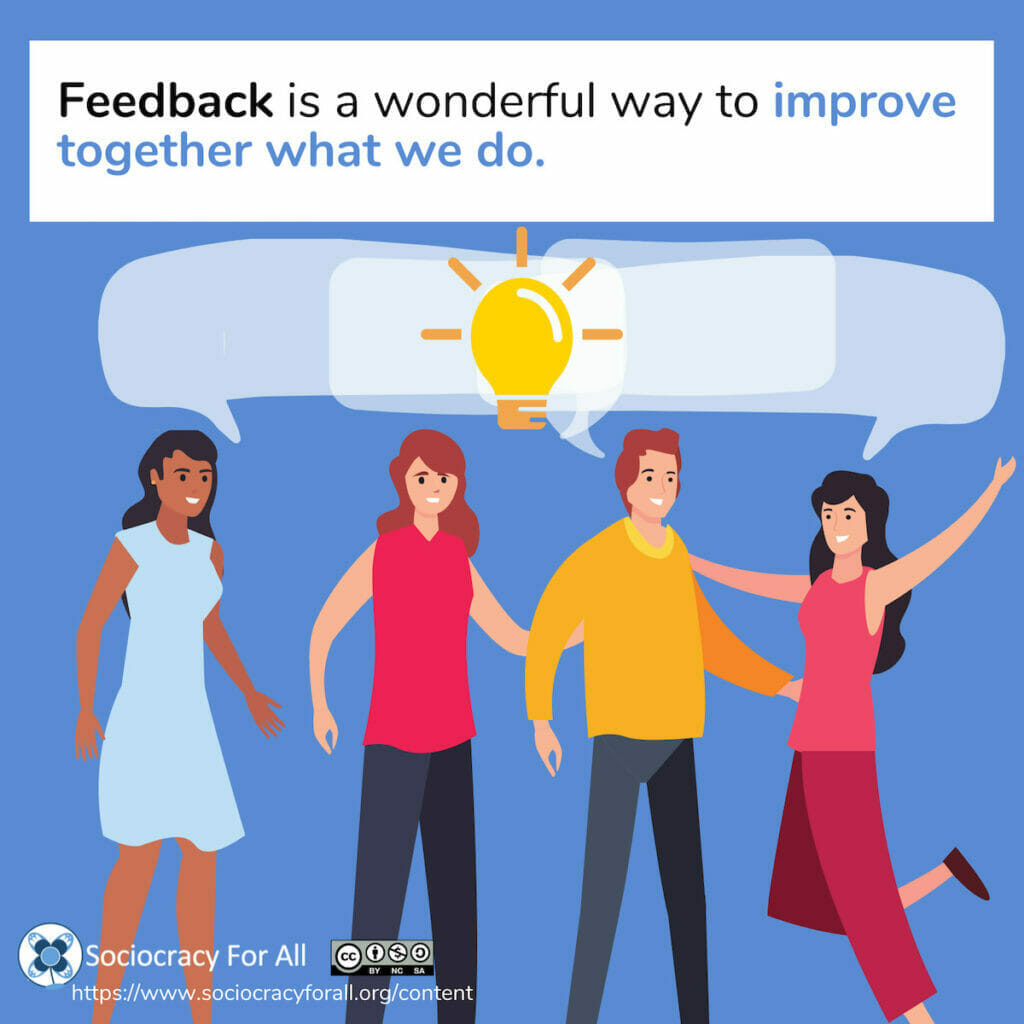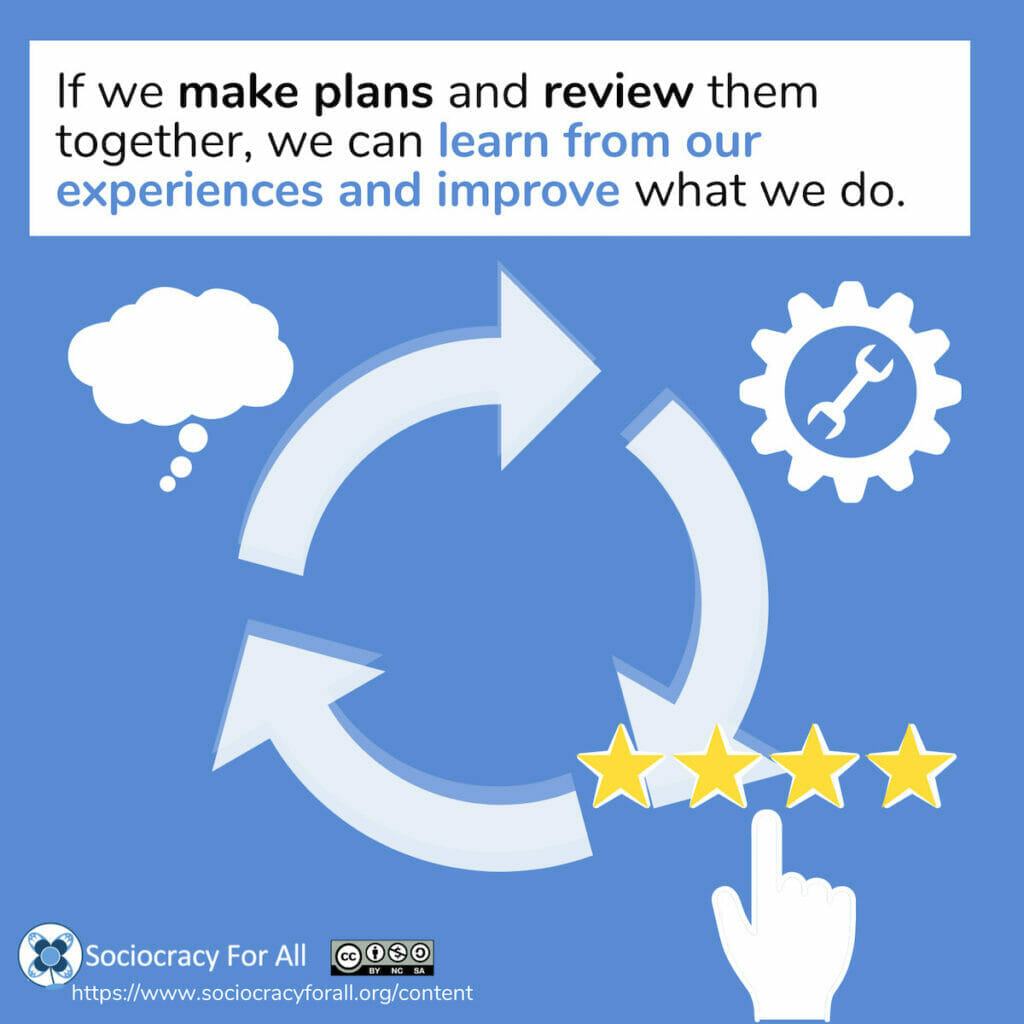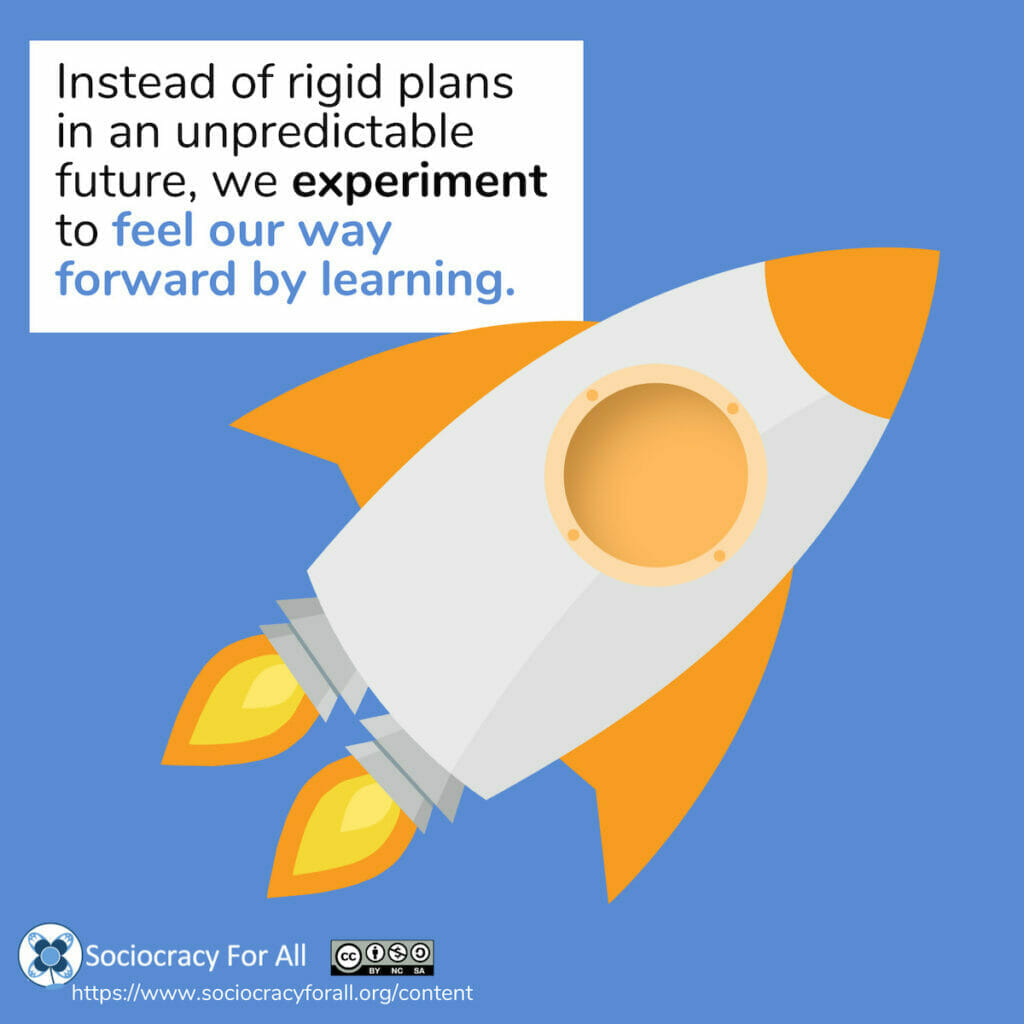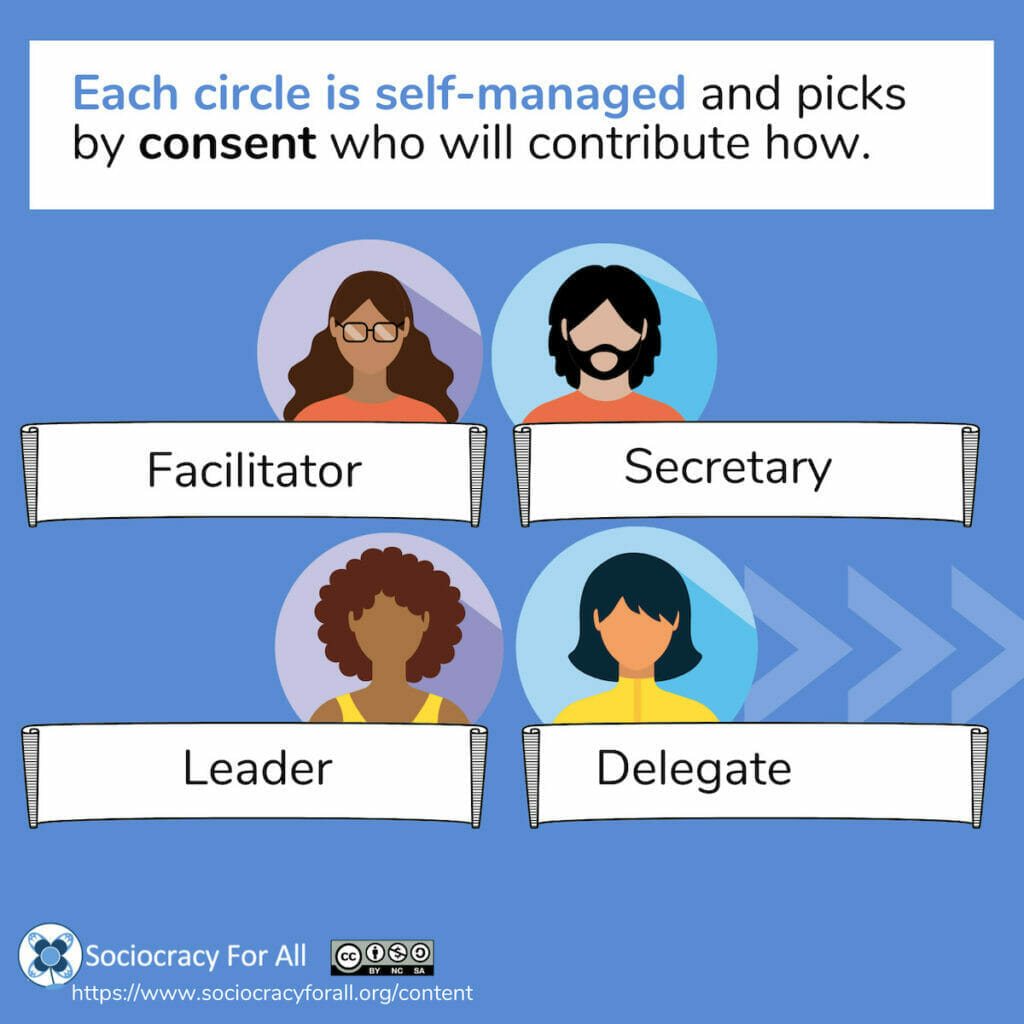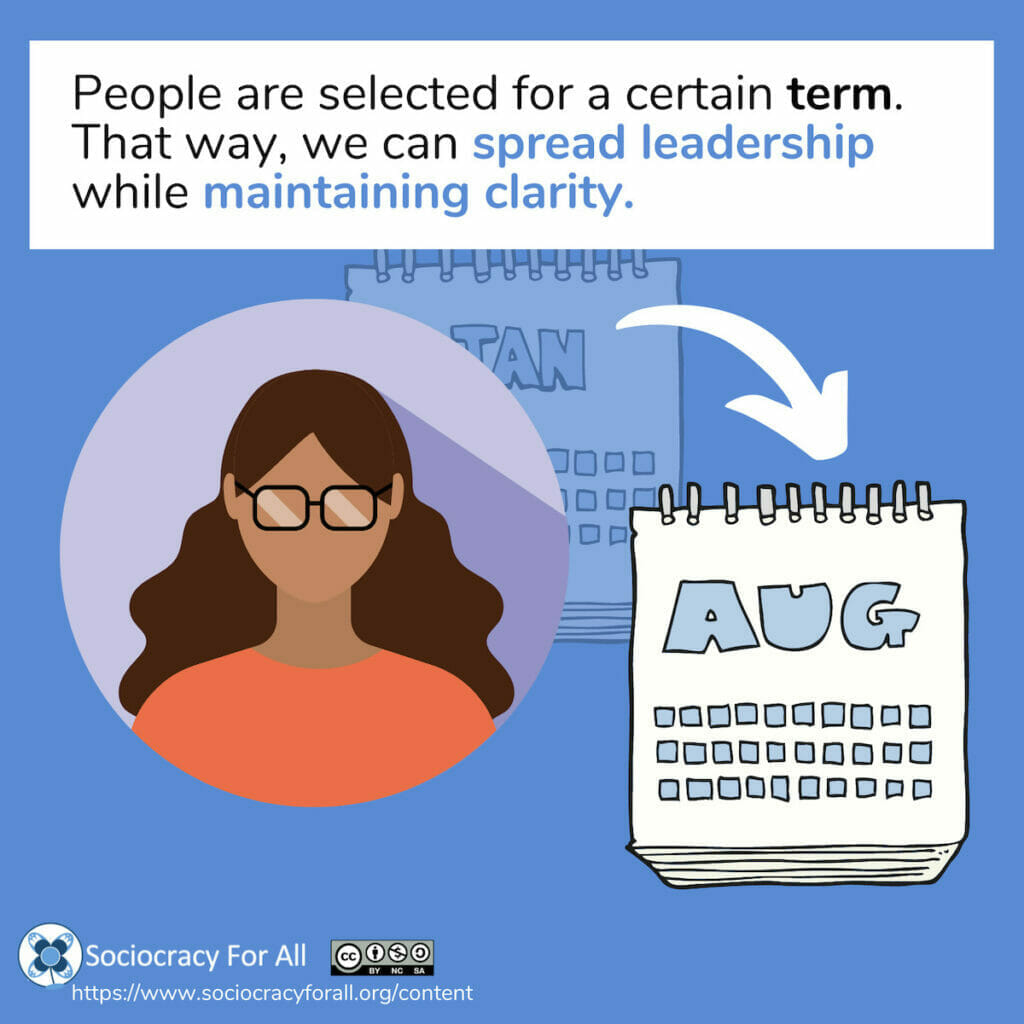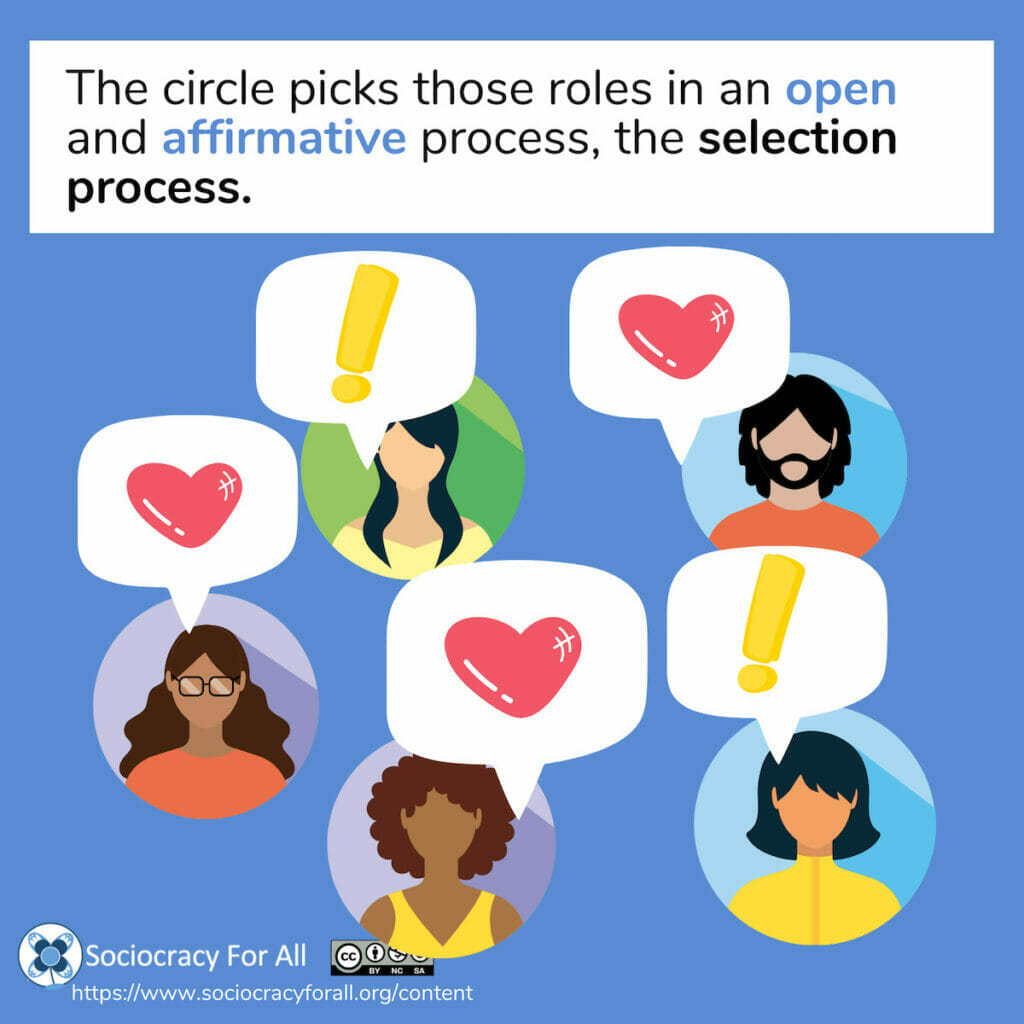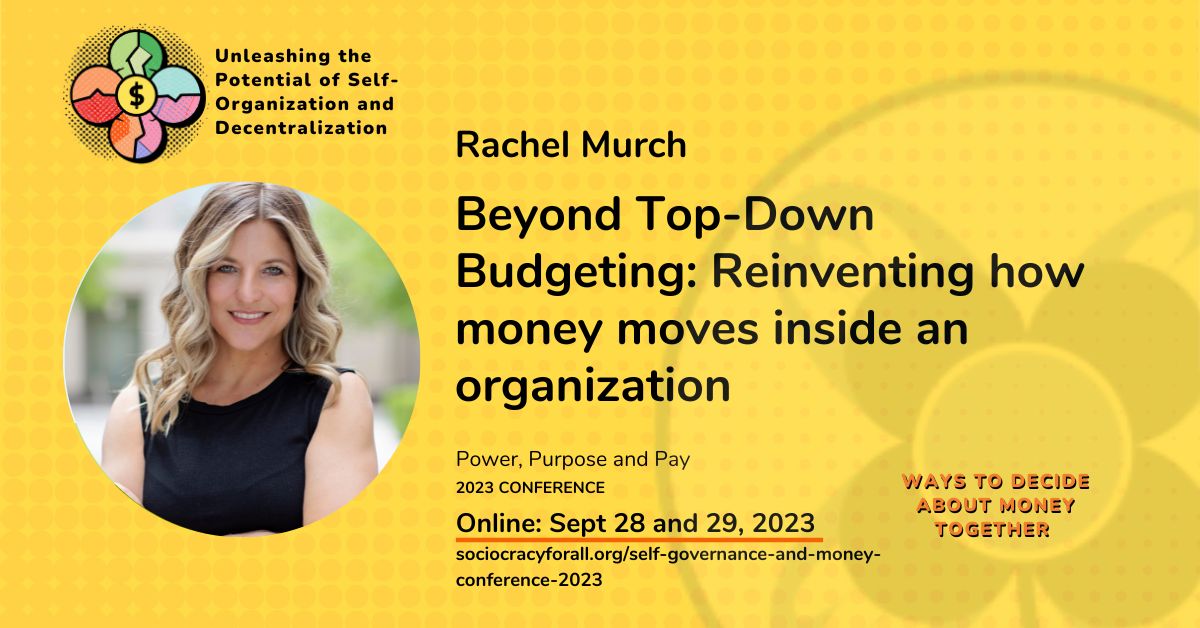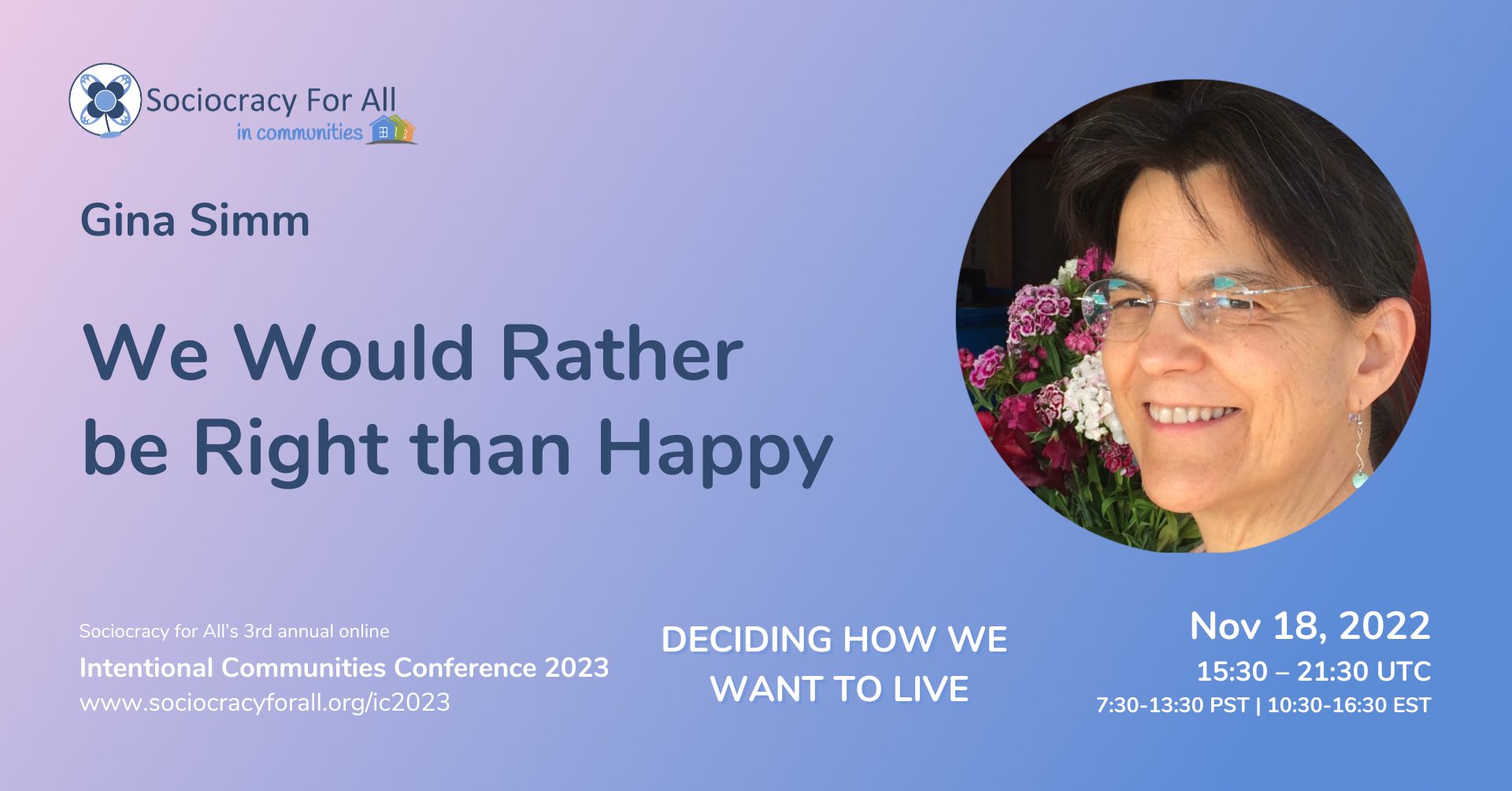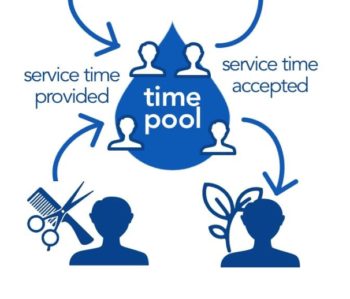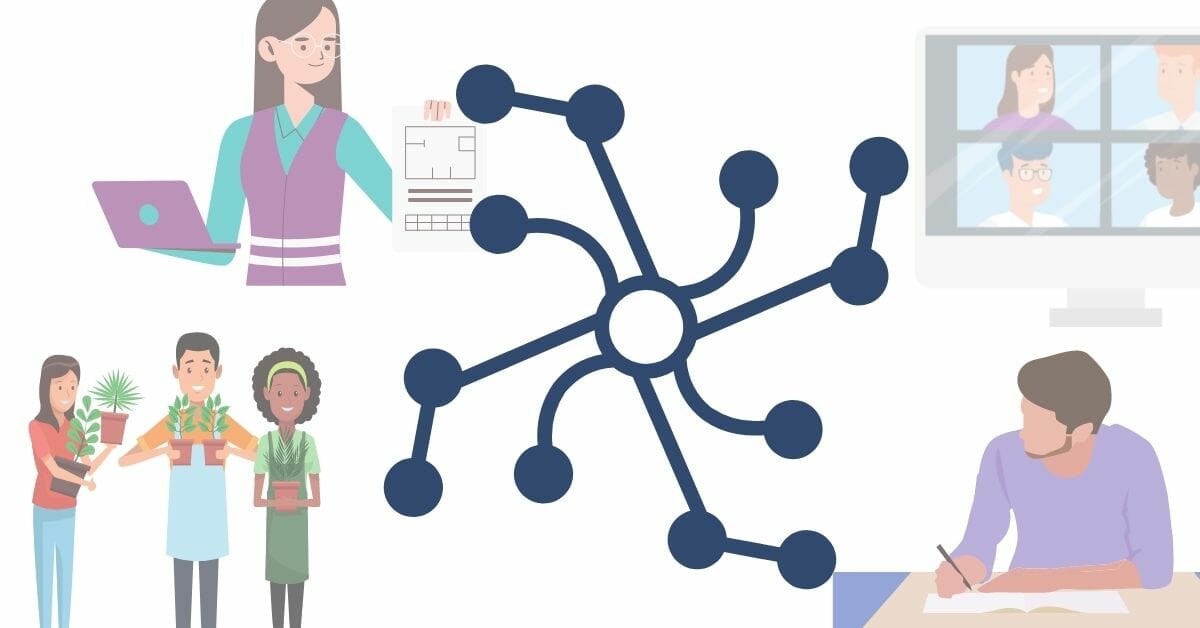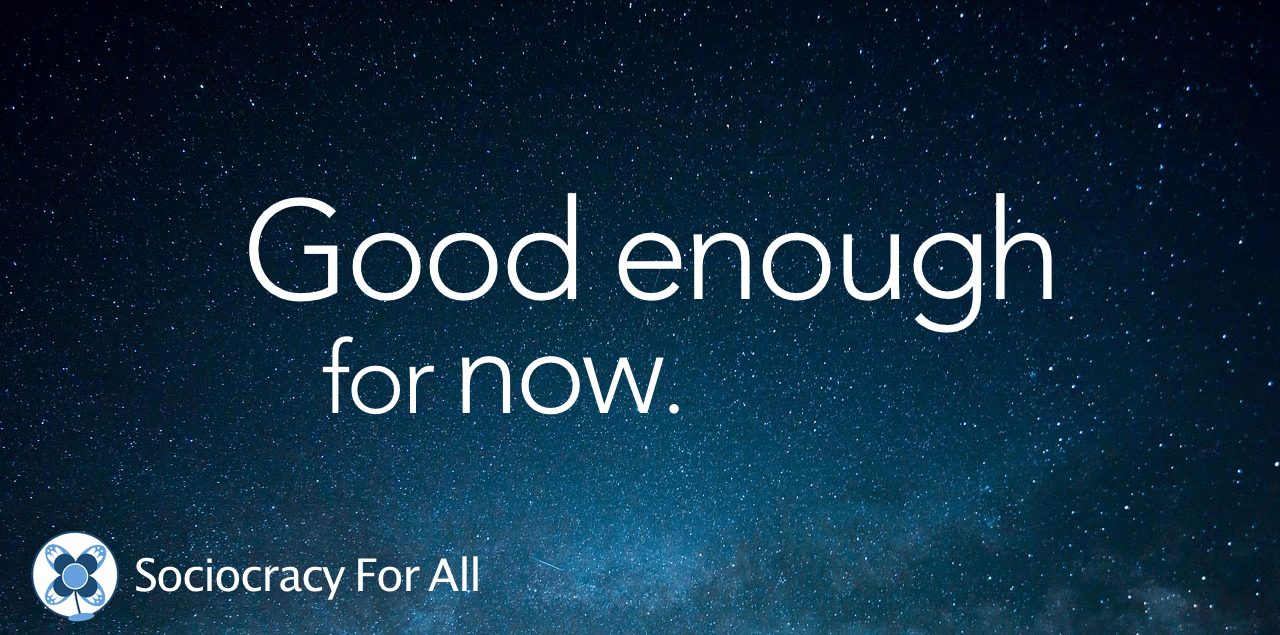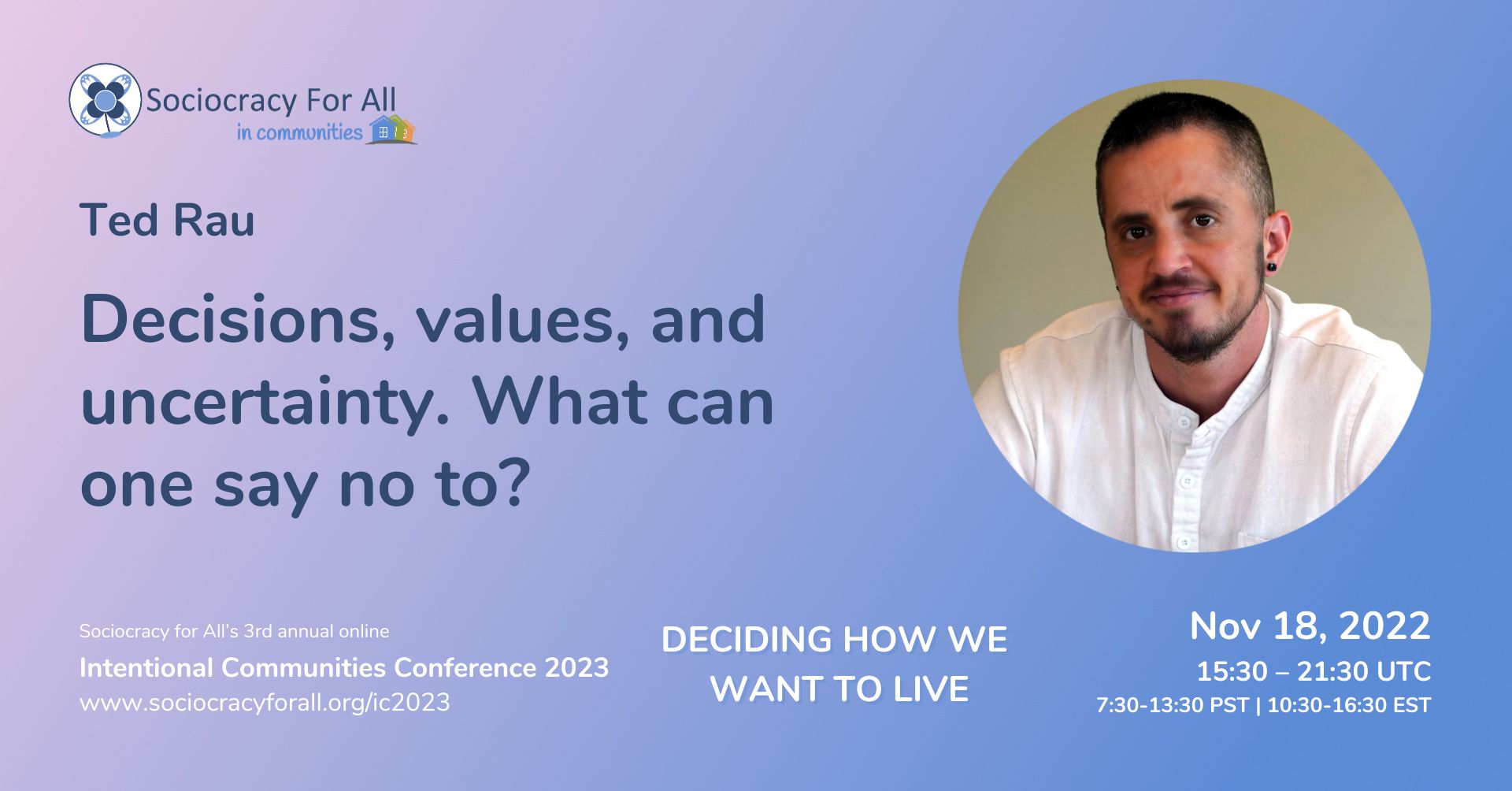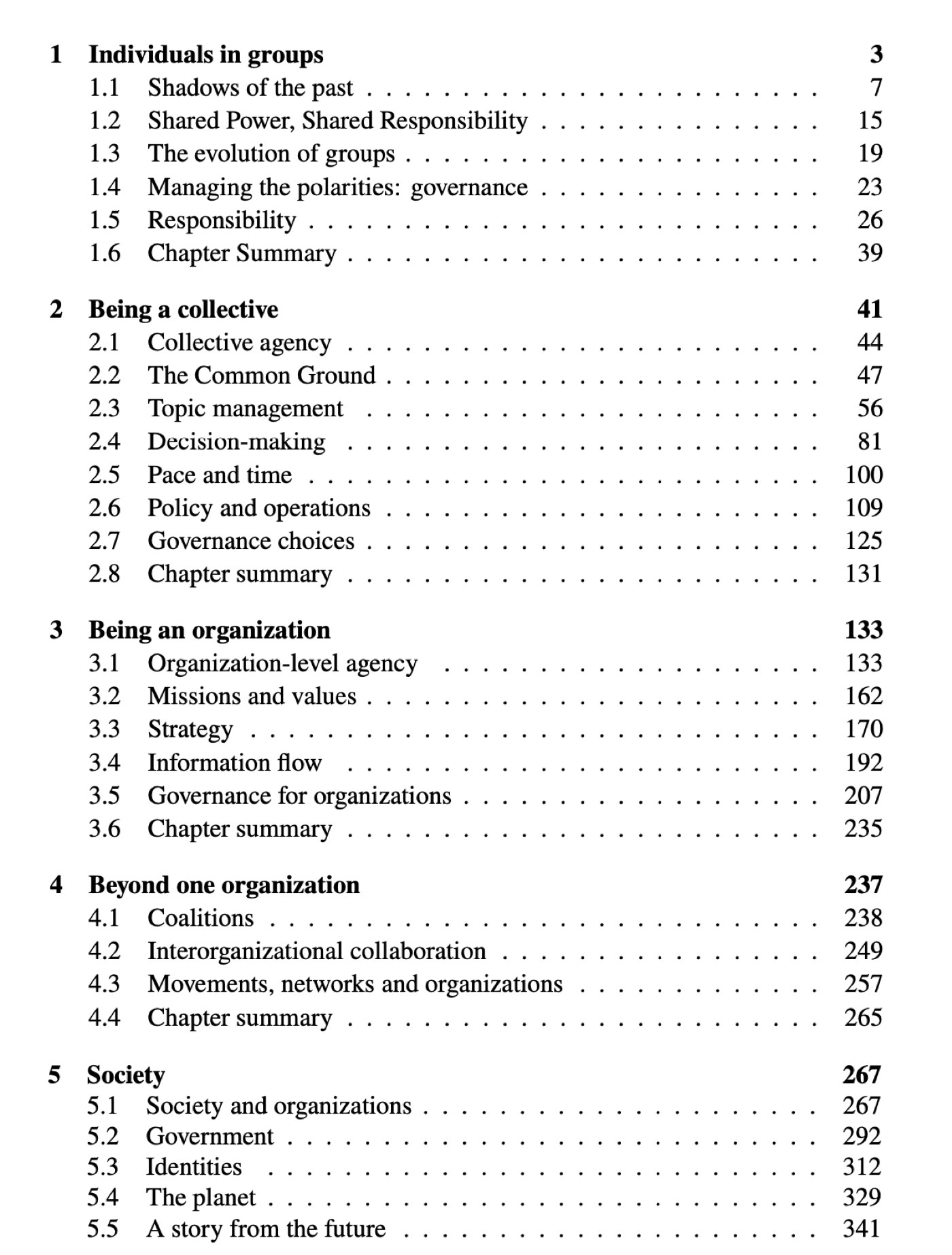Language: Español
Sociocracy combines consent decision-making, a decentralized system of authority and intentional processes to improve our decisions and processes over time into a governance system that supports effective and efficient process while increasing connection, listening and co-creation among members.
Sociocracy is used in businesses, communities, nonprofits, cooperatives, grassroots groups and in education. See the sociocracy resources on this page to get started.
Go one step deeper:
Free ebook
Are you more the sit-down-and-read type to read all in one go?
We got you!
Download the free ebook and learn more!

Monthly free info sessions
Are you more the “I want to talk to a real human being” kind of learner?
Our free info sessions give you an overview within 60min.
Also ask your questions there.

Books from Sociocracy for All

Many Voices One Song
The practical sociocracy handbook written by the co-founders of Sociocracy For All. 300 pages full of real-life support!

Let’s Decide Together
The definitive guidebook for practicing sociocracy with children. Children can decide with sociocracy too!
Sociocracy topics
Each of these short summaries gives you an overview of the sociocracy resources for you to learn more.
More: Selection process | Writing proposals | Implementation
Making group decisions: consent
Consent is the default decision-making method in sociocracy. In consent, a decision is made when no circle member has an objection. Every person will consent if they can accept the proposal, and object if the proposal has negative implications with respect to the circle’s shared aim.
A group moves to consent in the consent process: presenting the proposal and clarifying questions, quick reactions and a round of consent/objections.
Different from blocking a proposal in consensus decision-making, objections are welcomed as valuable information and they can be integrated by modifying the proposal, its term or its measurements.
Circles and roles: who decides what?
Decisions are made in circles, a defined team of people working together towards their circle’s aim. Circle members make collective policy decisions in their domain and they define operational roles to empower individuals to take on responsibility and circle roles to self-manage their circle.
Circles are connected through parent circle/sub-circle relationships of nested domains, leading to a system where everything can be decided locally in the system, without centralizing power at the center. To make sure two circles are connected, we double-link them with two people as members in both circles.
Sociocracy resources on structure: Overview article on structure
Meetings with sociocracy
Sociocratic meetings are inclusive and efficient with a clear format:
- Opening: check-in and ADMIN
- Content of the meeting
- Consent to agenda
- Agenda items
- Review
- Check-out (meeting evaluation)
Facilitation is a focus of sociocracy. Rounds – the practice of speaking one by one – are commonly used in meetings to keep equivalence and focus. Rounds also make it easy to run virtual meetings in video calls.
Performance
All sociocratic processes are built on the basic idea of continuous improvement. Feedback is a way to improve what we do, both by creating feedback-rich organizations, a commitment to interpersonal feedback and formal, peer-oriented performance reviews. Other practices are: meeting evaluations in meetings, reviews for all policy decisions and for role selections.
Leadership in sociocracy is peer-oriented and based on accountability to own commitments and to the circle. Many people also combine sociocracy with restorative justice or Nonviolent Communication to align their practice with their values and to improve their effectiveness and communication.
Selection process
A sociocratic circle chooses together who will fill an operational or circle role. The most common process to choose that person is the selection process with nominations, change round and consent.
Ready to learn?
More sociocracy resources: articles and videos
-
-
Permaculture, transition and sociocracy
Language: Español An interview with Permacultura and Transizione, Italy. Hello Ted and Jerry, good to meet you and to have a little chat with you. The first question is of […]
-
Beyond Top-Down Budgeting: Reinventing how money moves inside an organization
Rachel Murch | Sep 28th, 16:45 – 17:35 UTC.
-
Rocky Corner cohousing
Rocky Corner is a cohousing community being built in Bethany, Connecticut in the USA.
-
5 Ways you’re already using restorative practices
Language: Español 5 Ways you’re already using restorative practices and how to become even more restorative when using sociocracy “Don’t tell anyone else we’ve trained, but this is by […]
-
We Would Rather be Right than Happy
Gina Simm | 16:00 UTC
-
A time bank using sociocracy: Valley Time Trade
Valley Time Trade is a volunteer organization that tracks hours of service offered by members to other members, referred to as a time bank. It is located in the north-central part of the Pioneer Valley, a western region in the state of Massachusetts.
-
What is a Help Desk?
After using sociocracy “by the book” for years and very successfully, we have started to introduce a new concept: a Help Desk circle. It introduces a small but extremely powerful nuance in what circles are and how we can decentralize decisions and operations while empowering everyone in the organization in moving things forward that they…
-
The liberating effect of “good enough for now”
“Good enough” sounds like a low-level decision-making method. And yet, for some people, that’s not how they experience it. “Only” aiming for good enough can be a matter of respect and
-
Decisions, values, and uncertainty. What can one say no to?
Ted Rau | 20:00 UTC





